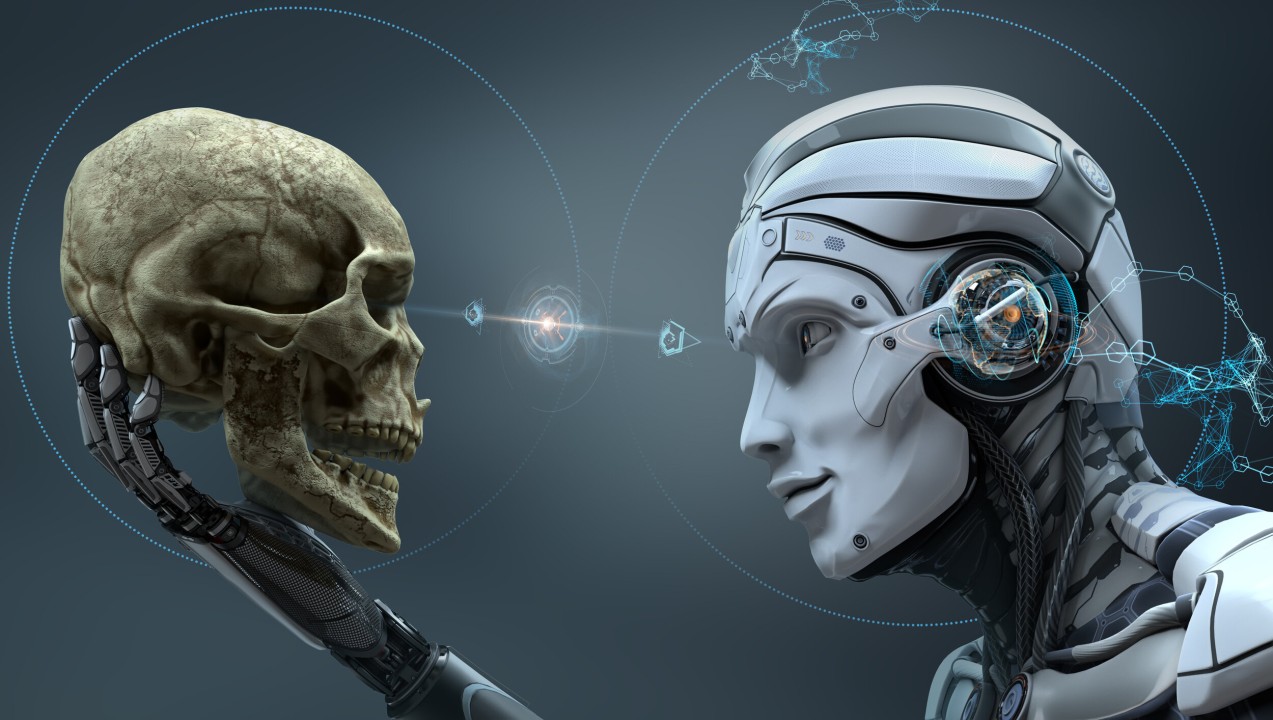Artificial Intelligence (AI), Machine Learning (ML), Deep Learning (DL), and Data Science (DS) are the Technological Advancements shaping our contemporary world. These innovations are increasingly becoming integral to our daily lives, evident in the way we interact with technology. From unlocking our smartphones using facial recognition, engaging with chatbots for virtual assistance on websites, to the seamless filtering of unwanted emails into our spam folders , these are just a few examples of how AI and ML are transforming our everyday experiences. So, Lets Discuss How to Get a Job in AI in 2024?
The potential for AI, ML, and DS to revolutionize various industries is immense, with companies continuously pushing the boundaries of innovation. Businesses are leveraging AI and ML to streamline internal processes, analyse vast amounts of data, and create extensive knowledge pools, all contributing to their overall growth and efficiency. As reliance on these Technologies escalates, the demand for skilled professionals in AI and ML is soaring. Companies are on the lookout for talent that can not only handle complex projects but also bridge the gaps in the industry’s evolving skill set. For those aspiring to be part of this exciting field, the opportunities are abundant and fulfilling.
Whether you’re just starting to explore the realm of AI and ML or looking to deepen your expertise, this step-by-step guide on How to Get a Job in AI in 2024? is designed to navigate you through the journey of building a successful career in these dynamic and impactful fields.
AI and ML in 2024
In 2024, AI and ML have transcended traditional boundaries, with their applications becoming more advanced and widespread. We are witnessing AI and ML integration in sectors ranging from healthcare, where they assist in accurate disease diagnosis and personalized treatment plans, to the automotive industry, where they power the next generation of autonomous vehicles. In the realm of customer service, AI-driven chatbots and virtual assistants have become more nuanced and capable, offering personalized interactions and support. Additionally, in the financial sector, AI and ML play a crucial role in risk assessment, fraud detection, and algorithmic trading, making processes more efficient and secure.
However, the dynamic nature of AI and ML technologies means that what is cutting-edge today may become obsolete tomorrow. This rapid evolution underscores the importance of continuous learning and adaptation in the field. For professionals aspiring to thrive in this landscape, it is imperative to stay abreast of the latest trends, tools, and techniques. Continuous learning is not just an asset but a necessity, ensuring that one remains relevant and competitive in this ever-changing environment.
Educational institutions, online platforms, and industry training programs are increasingly focusing on providing up-to-date knowledge and skills in AI and ML. These resources are invaluable for those looking to enter the field or enhance their existing expertise. Moreover, the growing community of AI and ML enthusiasts, researchers, and professionals offers a rich source of knowledge sharing, collaboration, and innovation.
But what exactly entails a career in AI and ML? In this section, we’ll delve into the various job roles in these fields and how you can prepare for a career in AI and ML, including engaging in AI projects to solidify your understanding of the technology.

Job Opportunities in AI and ML in 2024
The AI and ML landscape offers a plethora of job opportunities. Let’s look at some key roles:
- AI Engineer: Tasked with developing, programming, and training complex AI models, AI Engineers utilize Machine Learning algorithms and Deep Learning Neural Networks. Free courses on AI as a service can be a starting point for learning.
- Machine Learning Engineer: These professionals focus on developing and deploying ML models, selecting appropriate algorithms, and designing supporting infrastructure.
- Data Scientist: Involved in data collection, cleaning, and analysis, Data Scientists build predictive models for data-driven decision-making.
- Research Scientist: They innovate new applications of Machine Learning, including work in areas like Natural Language Processing and Computer Vision.
The Future and Scope of AI
AI is a monumental technological breakthrough. Its scope for transforming industries and improving global issues like climate change, food and water scarcity, and health crises is immense. With continuous advancements, AI’s capabilities in understanding and interacting with the world are expected to grow significantly. According to Forbes, the demand for AI and ML skills is projected to increase by 71% over the next five years, reflecting their critical role in the job market.
Steps to Starting a Career in AI and ML
- Grasping Programming Fundamentals: Programming is foundational for anyone in AI or ML. Learning languages like Python, Java, R, and C++ is essential. Online courses can provide a strong base in programming and understanding AI and ML algorithms.
- Deep Dive into Mathematics and Statistics: Proficiency in these areas is crucial for creating AI that surpasses human intelligence and for making sense of vast data sets in Big Data and Data Science.
- Understanding Machine Learning Algorithms: Grasping different types of algorithms is key to building AI and ML models. Online courses can be a great resource to start learning these algorithms.
- Familiarity with Key AI Concepts: Deep Learning, Natural Language Processing, and Computer Vision are critical areas in AI. These concepts are essential for AI systems to interact and adapt to their environment.
- Hands-On Experience with Data: Data forms the core of AI and ML systems. Working with data sets is crucial for understanding how AI and ML models learn and make decisions.
- Continued Learning and Advancement: AI and ML are ever-evolving fields. Staying updated with the latest advancements through reading, attending conferences, and taking up courses is vital.
- Acquiring Relevant Degrees or Certifications: With the growing demand in AI and ML, obtaining a degree or certification in these fields is increasingly important. Many institutions offer courses tailored to AI and ML, providing the necessary skills and knowledge.

How to Start a Career in Artificial Intelligence in 2024?
A career in Artificial Intelligence (AI) involves a series of steps, each building your expertise and understanding of this complex field. Here’s a structured approach to getting started:
Step 1: Master the Fundamentals
Developing a career in AI starts with mastering a set of core skills. While it might seem challenging to acquire all these skills, a focused and structured approach can yield significant results.
- Programming Skills: Proficiency in programming languages such as Python, Java, R, and C++ is crucial. Courses, especially those included in an M.Tech in AI program, can provide a solid foundation in programming, familiarizing you with essential algorithms and the basics of AI and ML model creation.Fun Fact: Programming languages are tools for developing software, scripts, or instructing machines, with Python, Java, and C++ being particularly prevalent in AI and ML for their human brain-like processing capabilities.
- Machine Learning Algorithms: A thorough understanding of various algorithms is fundamental to designing AI and ML models, as these algorithms form the core of AI systems. They are crucial for pattern recognition and predicting trends.Learning Tip: You can deepen your knowledge of machine learning algorithms through advanced courses, with certificate programs from reputed institutions providing a robust foundation in these essential skills.
- Key AI Concepts: Proficiency in Natural Language Processing (NLP) and Computer Vision (CV) is essential. NLP equips machines to understand human language and learn from their surroundings, while CV enables them to perceive and interpret their environment, crucial for tasks like object recognition and image search. Together, NLP and CV are pivotal in teaching AI systems to interact and learn, achieving human-level accuracy.
- Mathematics and Statistics: A strong background in mathematics, statistics, and probability is vital for AI professionals. These skills enable the development of programs that outperform human intelligence in complex tasks and operate autonomously.Fun Fact: A blend of statistical, mathematical, and programming skills is indispensable in AI for understanding algorithms, identifying patterns, and ensuring the effective functioning of AI and ML models.
Step 2: Gain Practical Data Experience
Data is the lifeblood of AI and ML systems. It allows these systems to learn from past experiences and adapt. Gaining hands-on experience with large datasets is crucial, and various data science courses can provide the necessary training in this area.
Step 3: Advanced Training and Certification
With the rapid advancements in AI and ML, and their growing integration in business, the demand for professionals with advanced skills is on the rise. To distinguish yourself, consider undertaking specialized certification or executive courses that add valuable skills to your resume.
Step 4: Education and Certification
Navigating the landscape of Artificial Intelligence (AI) and Machine Learning (ML) careers often begins with education and certification. Formal degrees in computer science, data science, or specific AI and ML courses provide foundational knowledge and technical expertise. These degrees are not just a formality but a gateway to understanding the complexities of AI algorithms and ML models.
Online learning platforms have revolutionized access to education, offering courses that range from beginner to advanced levels. These resources are particularly valuable for those looking to specialize in niche areas of AI or for professionals seeking to update their skills in line with the latest developments.
The significance of certifications cannot be overstated, especially in a field as dynamic as AI. Certifications from reputed institutions or technology companies can greatly enhance a resume, showcasing a commitment to staying abreast of industry trends and possessing the skills in demand.
Step 5: Gaining Practical Experience
While theoretical knowledge is crucial, AI and ML are fields where practical experience is equally important. Hands-on experience can be gained through various means:
- Working on Projects: Engaging in real-world projects or simulations can provide deep insights into the challenges and intricacies of AI and ML applications.
- Internships: Internships offer a platform for learning and applying skills in a professional setting, providing invaluable industry exposure.
- Kaggle Contests: Participating in competitions on platforms like Kaggle can sharpen your problem-solving skills and offer a chance to learn from a global community of data scientists.
Industry professionals often emphasize the importance of building a practical skillset, as this experience is crucial when tackling real-world problems and staying ahead in the fast-paced AI industry.
Step 6: Staying Ahead in the Field
The field of AI is continually evolving, making it essential for professionals to stay updated with the latest advancements. This can be achieved through:
- Continuous Learning: Engaging in ongoing education through courses, workshops, and webinars.
- Following Industry Trends: Keeping abreast of the latest research and developments in AI and ML through journals, blogs, and conferences.
Final Thoughts
The potential and opportunities in AI and ML careers are vast and continue to expand. As we look towards 2024, the field is ripe with possibilities for innovation, growth, and career advancement. Whether you are just beginning your journey or looking to deepen your expertise, AI and ML offer diverse paths to success.
So, This was Our Take on How to Get a Job in AI in 2024?
Also, Read: OpenAI Residency Program 2024: A Complete Guide
FAQs
How do I start my career in AI?
Firstly, to kickstart a career in AI, begin by acquiring a foundational understanding of programming languages like Python or Java. Secondly, enrich your knowledge through online courses or degrees in relevant fields such as data science or computer science. Additionally, engage in practical projects to apply what you have learned.
How do I get my first job in AI?
To secure your first job in AI, initially, build a strong portfolio showcasing your projects and skills. Subsequently, network with professionals in the field through LinkedIn and industry events. Furthermore, actively search for entry-level positions or internships in AI to gain practical experience.
How can I learn AI step by step?
Start by learning basic programming skills, then gradually move on to more complex AI concepts and machine learning algorithms. Furthermore, engage in hands-on projects to apply your learning, and consistently seek out advanced courses to deepen your expertise.
How to find a job using AI?
Utilize AI-powered job search platforms that can help match your skills with suitable job openings. Additionally, leverage AI tools for optimizing your resume for specific AI roles, and consider using AI-driven networking platforms to connect with industry professionals.
Which jobs will be AI proof?
Jobs requiring high emotional intelligence, creative thinking, and complex problem-solving skills, such as healthcare professionals, therapists, artists, and strategic decision-makers, are generally considered more AI-proof.
Which job is best in AI?
The best job in AI can vary based on your interests and skills. Popular roles include AI Engineer, Data Scientist, Machine Learning Engineer, and AI Research Scientist. Importantly, choose a role that aligns with your passion and skill set.
Can I learn AI on my own?
Absolutely, you can learn AI on your own. Utilize online courses, tutorials, and forums to build your knowledge. Additionally, engaging in DIY projects and participating in AI competitions can significantly enhance your learning experience.
What is the salary of AI for beginners?
For beginners in AI, salaries can vary widely depending on location, company, and specific role. Generally, entry-level positions in AI offer competitive salaries, often starting from $50,000 to $70,000 annually in the U.S., with variations across different countries.
How to get a job in AI without a degree?
To get a job in AI without a formal degree, focus on building a strong portfolio showcasing your AI projects. Additionally, acquire certifications from reputable online platforms, and consider gaining experience through internships or freelance projects. Networking and showcasing your practical skills can also be pivotal in securing a job in AI without a traditional degree.
Disclaimer:
This blog contains information that has been sourced from various online platforms and publications. While every effort has been made to accurately represent the ideas, concepts, and knowledge from these external sources, we do not claim originality for all the content presented herein. This compilation of information is intended for educational and informational purposes only.
We respect the intellectual property rights of others and we endeavour to credit all sources appropriately. However, if you believe that any content on this blog violates any copyrights or proprietary rights, please contact us directly so we can take necessary action, including the removal or proper crediting of the said material.
Please note that the use of this information is at the reader’s discretion and risk. We do not hold liability for any direct or indirect repercussions or consequences that may arise from the use of information provided in this blog. The content is provided “as is” without any warranties, and while we strive to keep the information up to date and correct, we make no representations or warranties of any kind, express or implied, about the completeness, accuracy, reliability, suitability, or availability with respect to the blog or the information contained on the blog for any purpose.
This disclaimer is subject to changes and updates, and it is advisable for readers to revisit it periodically.



